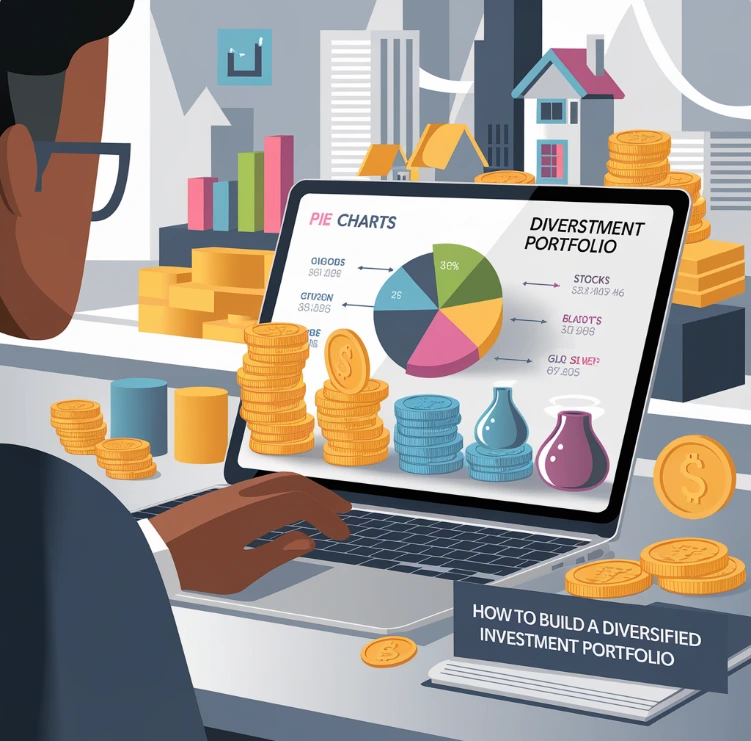If you’re not a financial expert, choosing a financial advisor can feel like stepping into a maze without a map. Money management is complicated—estate planning looks nothing like retirement investing, and creating a monthly budget is a far cry from managing a large investment portfolio. That is why it can be so important to find the correct financial advisor.
The challenge? You’re handing over access to one of the most personal and sensitive parts of your life: your finances. It can feel intimidating. But the right advisor will not only guide you through tough financial decisions, they’ll also ease your stress and give you confidence.
Here’s how to find the right financial advisor for you—and the four key steps you should keep in mind.
1. Identify Your Financial Needs
Consider why you should have a financial advisor before you contact anybody. Are you mainly looking for investment guidance? Do you need help saving for retirement? Or perhaps you would like to have ideas on how to pay back debt or put together a full financial plan.
According to analysis, some people only need a short-term plan or a one-time checkup, while others benefit from ongoing meetings with an advisor throughout the year. If your needs are simple, paying an advisor hourly for a session or two might save you money. However, regular support can be more prudent when it comes to divorce, inheritance, or an intricate retirement case.
An example of this is one of the stories (divorced): a person who recently divorced, yet required assistance with retirement accounts, realized the clarity and confidence she obtained after working with an advisor. Initially, they did not care about the details but eventually, they came to know how to make sound decisions regarding retirement objectives. That’s the kind of partnership you should be looking for.
2. Know What Kind of Advisor Fits You Best
Not all advisors are alike. Depending on your financial situation and how hands-on you want the relationship to be, you’ll need to decide which type works for you:
- Robo-Advisors: Computerized programs that develop and operate a portfolio depending on your ambitions and danger. Costs are usually low—about 0.25% of assets annually. Great for straightforward investing, but not ideal if your financial life is complex.
- Online Advisors: These are a combination of computer technologies with human control. The level of service varies, but costs usually fall between robo-advisors and in-person professionals. Good if you want flexibility and periodic check-ins.
- Traditional Advisors: In-person relationships with financial experts who handle a wide range of planning needs. Typically charge about 1% of assets under management. These advisors work well for high-net-worth individuals or complex financial cases, but may be costly if your portfolio is smaller.
Credentials matter too. According to analysis, you should look for certifications like **CFP (Certified Financial Planner) or CFA (Chartered Financial Analyst). The two entail tough tests and codes of ethics. Better still, CFPs must operate like fiduciaries- that is, they must ensure that your interests are put ahead of theirs.

3. Understand How Advisors Get Paid
It is about money and we are paying someone to manage ours. Advisor fees are in the following forms:
- Robo-advisors: Approx 0.25%/year (i.e. 25 on every 10,000 invested).
- Fee-only advisors: Billed directly to you- by the hour, by the flat rate, or percentage of assets under management (AUM).
- Fee-based advisor: Fee based advisors have fees but can also make commissions on the sale of financial products.
According to analysis, it’s critical to ask the right questions:
- Do they earn commissions on stock trades or insurance sales?
- Are they associated with firms which market some products?
- Are they a fiduciary?
Here’s the bottom line: if you’re not paying directly, there’s a risk your advisor is being influenced by commissions. The old adage states, He who pays the piper calls the tune. This is why it is all about transparency.
For some, paying hourly for a session or two makes sense. For others, especially those with complex financial needs, paying an annual fee for continuous support is worth it.
4. Research and Vet Before You Commit
The U.S. is filled with thousands of financial advisors—so narrowing down the right one can feel daunting. But you don’t have to start from scratch. Here’s how to vet your options:
- Interview family and friends: Personal referrals will provide you with a sense of how an advisor communicates, whether or not he/she is trustworthy, and how effective they are.
- Match the equipment: Zoe Financial, Wealth ramp, or Harness Wealth are some of the services that can match you with pre-certified professionals at no cost.
- Search professional organizations: The CFP Board and the National Association of Personal Financial Advisors (NAPFA) let you search by zip code to find advisors near you.
When you’ve narrowed it down, interview potential advisors. Ask questions such as:
- How do you get paid?
- What credentials do you hold?
- Are you a fiduciary 100% of the time?
- What happens if you leave your firm?
- How does your firm measure success?
According to analysis, the advisor-client relationship should be built on trust and communication. The right fit would not only be aware of their numbers, but they would also hear and care about what you want to accomplish and change when your life would change.
What to Expect After Hiring an Advisor
Once you choose an advisor, your first meeting will likely involve a deep dive into your finances. Expect to discuss your goals, your income, your savings, and your tolerance for risk. From there, you’ll work together on a customized plan.
But financial planning isn’t static. Life changes—job shifts, family changes, health issues—and your advisor should adjust your plan along the way. Relationship value is achieved by those repeated support.
Final Thoughts
It is not as easy as that of having to identify the right financial advisor by just having to take the first person you get to see. It requires investigation, comparison and intelligent questions. But the reward is gigantic: improving your financial choices, being more confident and knowing that you have somebody on your side.
Yes, it is hard work in the short run.
Follow Us : youtube
Also Read : Can the U.S. Citizens who are Unemployed get Loans : 2025


